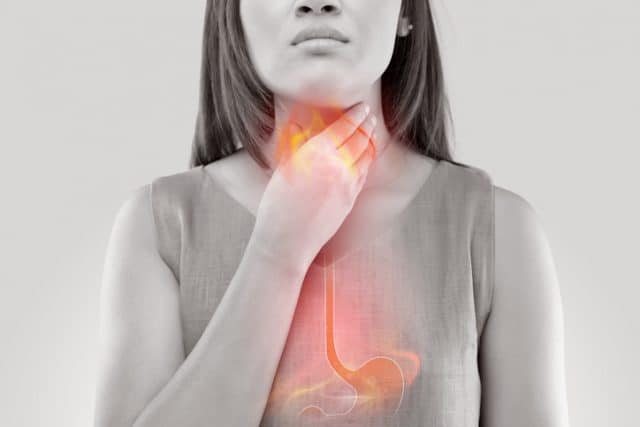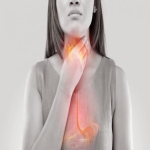
What is Acid Reflux?
Acid reflux is a common condition that occurs when corrosive stomach acid and stomach contents flow up into the esophagus through the lower esophageal sphincter (LES). The LES is a muscular ring positioned at the junction of the esophagus and stomach. The LES’s job is to open enough to let food enter the stomach and then contract to prevent food and stomach acids from back-flowing into the esophagus where the corrosive acids cause pain. Sometimes, the LES is weakened or damaged, causing acid reflux.
You should consult your doctor if you experience the following conditions:
- Suffering from acid reflux two times a week or more
- Taking antacids daily
- Noticing a decreased quality of life due to acid reflux symptoms
What are the Symptoms of Acid Reflux?
Symptoms depend on the specific organs that are in contact with stomach acid. Symptoms can be mild to severe. You may notice pain during these situations such as:
- Lying down
- Bending over
- After a big meal
- After a meal with a high fat or spice content
Although you can experience acid reflux symptoms at any time, most people feel the worst pain at night because lying down allows stomach acid to enter the esophagus more easily. Common symptoms of acid reflux are:
Heartburn:
A general term for pain in the upper chest caused by stomach acid burning the esophagus
Sour Taste:
This occurs when stomach acid flows all the way up the esophagus to the back of your throat. You’ll also feel a burning sensation.
Dyspepsia:
Also called indigestion, you may have a stomachache, feel bloated, have nausea, feel overly full, or belch and vomit. Dyspepsia may be an indicator of a more serious condition like an ulcer.
Regurgitation:
This occurs when a small amount of stomach contents reaches into the mouth. Vomiting occasionally accompanies this condition.
Stomach acid that reaches the throat can also cause the following symptoms:
- Dry cough
- Sore throat
- Hoarse voice
- Feeling of a lump in the back of the throat
How Will My Doctor Diagnose Acid Reflux?
To diagnose acid reflux, your doctor will conduct a physical exam and take a history of your symptoms. Other diagnostic tests include:
- Endoscopy: A procedure where a thin, flexible tube is inserted into the esophagus and stomach to find signs of damage.
- X-ray: Images are recorded after you drink a chalky liquid that coats your digestive tract, allowing the doctor to see the outline of your digestive system.
What are the Treatment Options for Acid Reflux?
Many treatment options exist for treating acid reflux. The most common include:
- Over-the-counter (OTC) antacids to neutralize stomach acid (Mylanta, Rolaids, Tums)
- Prescription or OTC medications that prevent the stomach from producing acid (Tagamet, Pepcid, Zantac, Axid)
- Prescription medication to eliminate acid production and heal the esophagus (Prevacid 24 HR, Protonix, Dexilant, Nexium)
In the most severe cases, surgery may be required to treat acid reflux. This usually includes minimally-invasive, laparoscopic operations to strengthen the LES muscle to prevent it from leaking stomach acid into the esophagus.
If you have symptoms of acid reflux or have been diagnosed with this condition, make an appointment today with Allied Digestive Disease Center of Houston and Cypress, TX. We help with digestive and nutrition issues by providing personalized, compassionate care combined with the latest treatment options.












